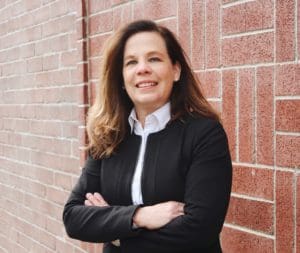Mediation in the Workplace. Member Spotlight: Lynn Hunt
Lynn Hunt currently resides in Ridgefield, Washington, which is a few miles outside of Portland, Oregon. She was first introduced to interest based conflict management processes as part of collective bargaining training 30 years ago. She had the opportunity to be part of a union/management negotiation team that used key mediation principles. In this process, she experienced first hand the benefits of collaboration in what could have easily been a very contentious situation. She stated, “I have been an evangelist for collaborative processes ever since, working with a wide range of individuals and groups including; juvenile victims and offenders, neighbors, public agencies, parents and school districts and the multitude of conflicts that occur between individuals in the workplace.” Furthermore, she added, “workplaces are large systems that we should aim to understand more closely.”
Workplace Mediation

While studying dispute resolution at Willamette Law School, she took a course in comparative dispute resolution. She stated, “It was fascinating to learn the wide range of cultural perspectives and approaches to conflict.” For Lynn, it is essential that workplace mediators foster an environment where everyone feels like they are respected and contributing to the larger vision of the organization. Therefore, when she had the opportunity to take a workshop in relation to conflict approaches in organisational settings from Ken Cloke she became interested in Mediators Beyond Borders International (MBBI). She has been following their work ever since and hopes that through platforms like MBBI, she will someday be able to contribute toward the resolution of multicultural conflicts.
For the past several years, she has mainly focused on workplace mediation. She stated, “in the past 20 years I have been involved with healthcare organizations helping individuals and work teams manage the inherent conflict that comes with high stakes situations on a daily basis.” She is also a volunteer mediator in other settings that has allowed her to learn and give back to the community in a meaningful way.
Common Ground and Empathy
In her work, she stresses the importance of not dehumanizing anybody in a team setting. On the contrary, it is about seeing what the group members have in common and understanding what part of the project is important for them at a personal and professional level. Furthermore, she shared that asking basic questions can lead to understanding the motives of people and empathy can be a channel to stay grounded. For Lynn, empathy has become a central element to her mediation philosophy considering it an area that she is always mindful of whenever she is mediating.
She also serves on the governing subcommittee of a workplace mediation cadre for government agencies. Both of these experiences combined with COVID-19 have given her the opportunity to offer workplace conflict resolution in new ways. She stated, “it’s been exciting to use virtual dispute resolution and online collaboration tools to bring conflict support to a broader population. We’ve been able to facilitate virtual collaboration sessions with team members hundreds of miles apart.” For instance, in a recent mediation session that she was able to help facilitate online, she used a program allowing members to express their opinions, thoughts and concerns using virtual sticky notes on a zoom whiteboard. This type of technology, due to the anonymity it holds actually contributed even more to the group cohesion and mediation goals because people were more open to share their ideas, voice and opinions.
Balancing Act
For her, balancing her career and personal life during COVID-19 has been a “challenge and a gift.” Though it is sometimes challenging to shut down the computer and “go home” she has appreciated the gift of time it has afforded her. She is passionate about what she does in the mediation field. In fact, she has taken this opportunity to explore new ways to interact and problem solve with others. Therefore, for junior and senior mediators, she recommends tapping into developing greater empathy and creativity. She stated, “I’ve noticed that we all seem to be more open to creative ways of working and learning as a community.” Furthermore, she adds, “Having to be more intentional about our interactions has led us to value each other in new ways.”
Article by Elizabeth Gamarra, MBBI Writer
